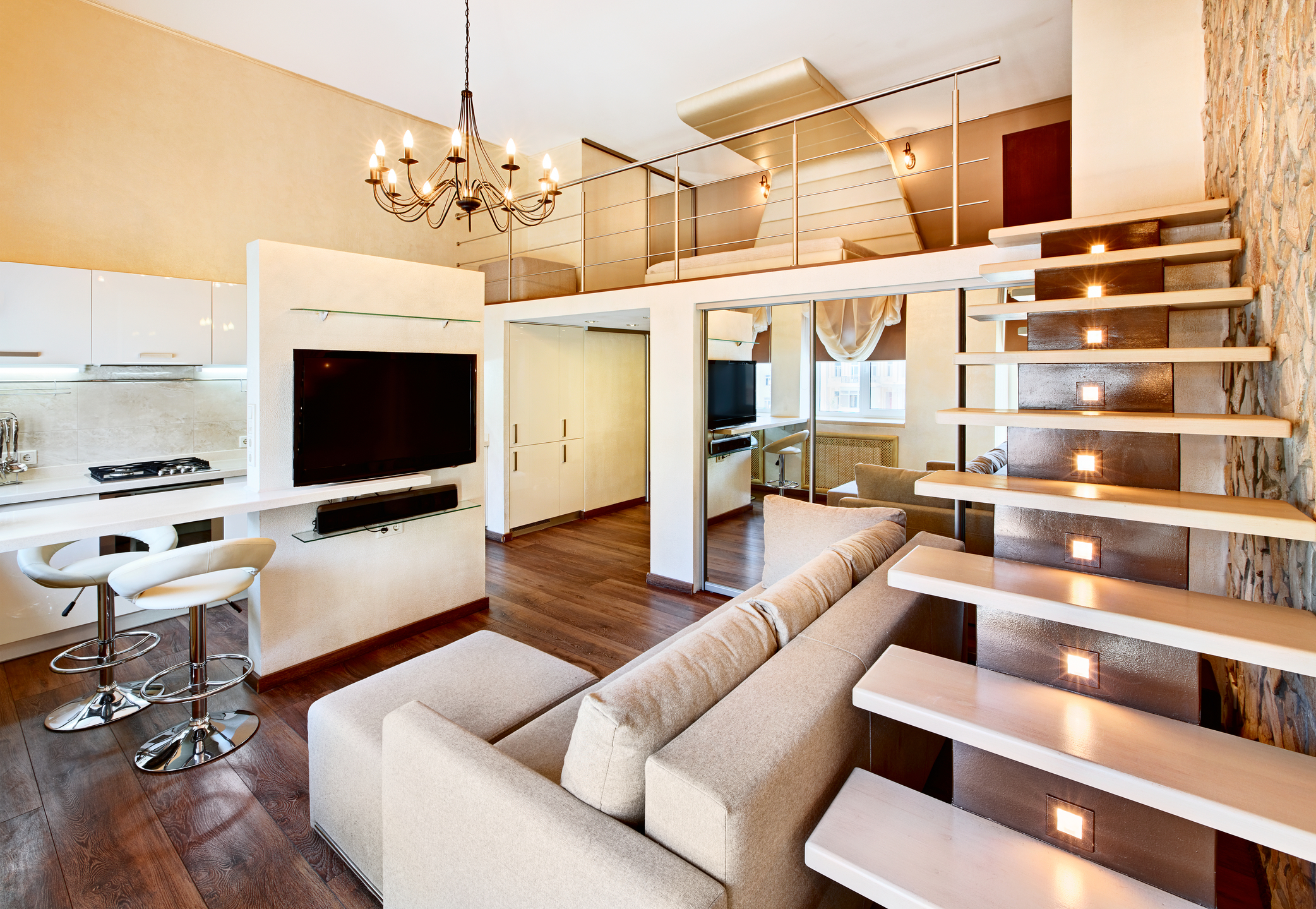Suburban homes—with their large spaces, big yards, and separate bedrooms for every child—will always be popular with families, especially families of four or more. But there’s also a contingent today that’s eager to live in a dense urban setting: a high-rise condominium in the downtown core, a small home in an urban neighborhood, a small apartment, or even a shared housing arrangement. For those people, designing, furnishing, and organizing these living spaces will require a very different approach.
Urban living spaces are usually much smaller than suburban homes, which means, if you use traditional furnishing and space-planning techniques, you’re bound to be frustrated by the outcome. But with a little planning and creativity, you can create a fully functional space that belies its size.
Small-space planning ideas
- Start with the biggest, most important piece in each room (the sofa, the dining room table, the bathroom sink, etc.), then plan the rest of the space around that item.
- Focus on the needs of those who will be living in the home full-time. Leave any accommodations for guests until later.
- Work to make every space multifunctional (e.g., a kitchen island that can also be used for eating; a home office that can also function as a TV room and/or guest room).
- Look for any opportunity to increase the amount of sunlight. Install glass doors and skylights, and leave windows unobstructed.
- The fewer walls separating spaces, the more open and spacious it will appear.
- Traditional staircases are an inefficient use of space. If you’re designing from the ground up, consider a spiral staircase instead.
- Light paint colors (especially white) will make a room look more spacious. The combination of light walls with a dark floor will magnify the effect even more. Consider painting one wall a contrasting color to create a stylish focal point.
Furnishing solutions for small spaces
- Your furnishings should be small mobile and, when possible, stackable. That way, spaces can be quickly reorganized to suit different situations.
- Furnishings that blend with the colors of your walls or floors (or are transparent) will make the space appear less cluttered. To add personality and warmth, accentuate with colorful throw pillows and rich fabrics.
- If you keep most furnishings against the walls, traffic flow will be improved, and it will make rooms feel larger.
- Furnishings that hang from the walls or have legs will also create the illusion of more space.
- In many cases, bench seating is better than individual chairs, because benches can accommodate more people and can be used as side tables when no one is sitting on them.
- Instead of a coffee table, consider small side tables. Instead of a full-size sofa, try a three-seat version, or even a love seat (just two cushions).
- A large, wall-mounted mirror will make the space appear larger.
- An open-sided bookshelf can do double-duty as an interesting room divider. Leaving it half empty will allow natural light to shine through.
- A table on wheels is good for the kitchen. Use it as an island in the center of the kitchen or roll it to the side and use is as a side counter.
- Consider using an under-counter refrigerator, together with an under-counter freezer, instead of one large, freestanding unit.
- In small spaces, there is no room for furnishings you don’t love. If something isn’t getting used much, or if you don’t really care for it, get rid of it.
Organizing small spaces
- The best furnishings are those that include storage space (a dining room table with drawers; an ottoman with a hollow interior; a bed that sits on a storage unit).
- Bookshelves and other wall-storage systems should be thin and as tall as possible to maximize storage while minimizing the amount of floor space used.
- Storage pieces with doors keep small rooms from looking cluttered and unkempt. Even glass doors can help achieve this effect.
- Remove food goods from their air-filled boxes and bags and store them in space-saving, stackable containers.
- Store larger things (like a vacuum cleaner, electronics, etc.) behind a free-standing decorative screen.
- A professionally designed closet storage system can double, and even triple, the space for your clothes. Removing the door(s) to the closet will ease access.
- Wall-mounted hooks are ideal for coats and much more. Pot racks are great for freeing up valuable cabinet storage space in the kitchen.
Many people think you need to sacrifice in order to live in a small space. But with these suggestions, you can simply adapt and enjoy your home to the fullest.
 Facebook
Facebook
 X
X
 Pinterest
Pinterest
 Copy Link
Copy Link



